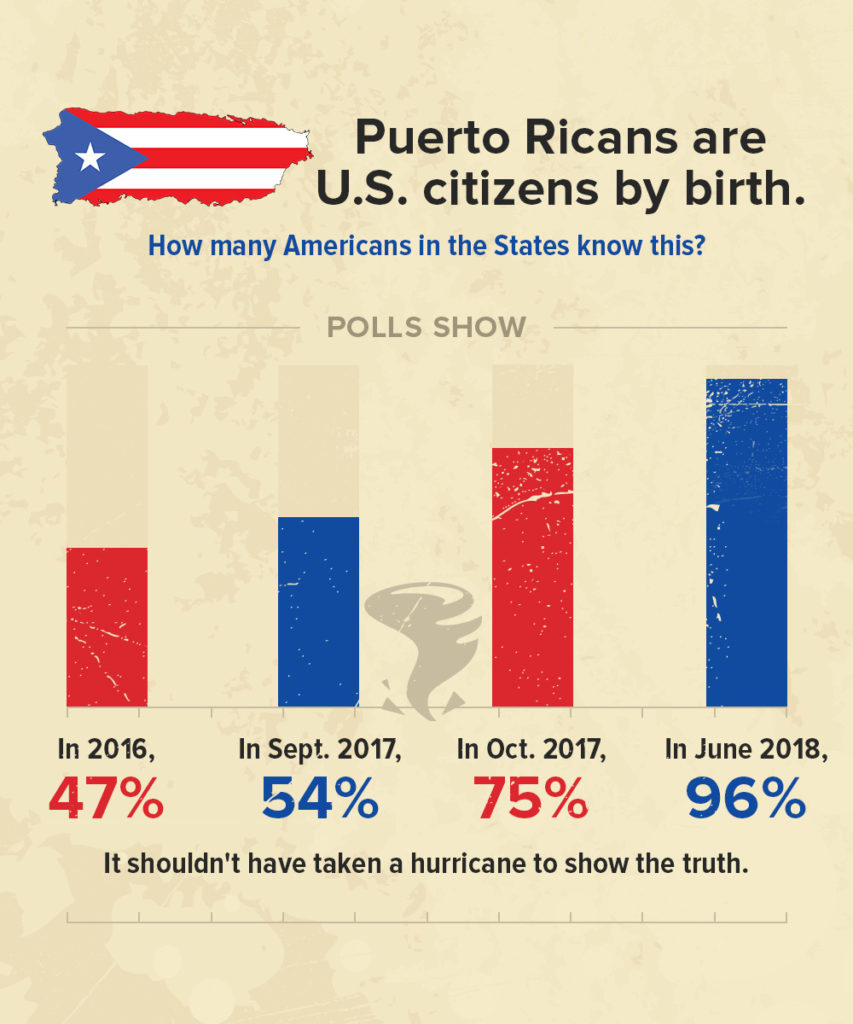Hurricane Fiona hit Puerto Rico almost exactly five years after Hurricane Maria. They are not identical. Maria was a category 5 hurricane and Fiona was a category 1 hurricane. Since Puerto Rico still has not recovered from the 2017 hurricane season, however, Fiona did a great deal of damage to an infrastructure that was already damaged.
More than three million people were without power and millions had no running water. Hundreds of thousands were still without these basic utilities a week after the hurricane hit.
Fiona dumped record-breaking amounts of rain on the Island and brought catastrophic flooding and mudslides. Experts cannot yet estimate the extent of the damage, but they expect the total to be in multiple billions of dollars.
Response to the hurricanes
A new report from the U.S. Commission on Civil Rights confirms that “Spanish-speaking Puerto Ricans received disproportionately lower amounts of assistance for María recovery than English- speaking mainland Americans received…lower levels of assistance to María survivors failed to comply with the principles underlying Title VI and 44 CFR § 7.5, which prohibits disparate treatment based on race, national origin, and linguistic characteristics in clear violation of federal court precedent and EEOC Guidance.”
The report explains that “decades of underinvestment and mismanagement leading to economic and structural vulnerabilities in Puerto Rico, as well as disparities in the timing, amount, and distribution of emergency relief funds, caused the Island to suffer disproportionately compared to U.S. states affected by similar disasters.”
The details in the report are sobering, even for those who remember the terrible aftermath of Hurricane Maria.
Will the response to Fiona be different?
Congress and the president
Many members of Congress asked President Biden to declare a major emergency and to ask FEMA to provide 100% coverage of the costs. These supporters included Chuck Schumer, Val Demmings, Nydia Velazquez, Bob Menendez, Dianne Feinstein, Cory Booker, Elizabeth Warren, Bernie Sanders, and many more.
Following Hurricane Maria, Puerto Rico was required to pay for repairs up front and then to apply for 75% reimbursement. In many municipalities, there were not enough funds to pay for debris cleanup and repairs before receiving federal funds. Therefore, the money allocated could not be used.
President Biden made the request, and FEMA is now approved to provide the needed funds without requiring cost sharing from Puerto Rico’s government. This is an enormous difference from the disaster recovery efforts following Hurricane Maria.
FEMA is more prepared
NPR reports that FEMA is much better prepared than they were in 2017. They have more supplies on hand, they have more people on the ground, and there is less confusion than there was after Hurricane Maria.
We are optimistic. When Hurricane Maria struck Puerto Rico, more than half of Americans did not even know that Puerto Ricans are citizens of the United States; some members of government also did not know this.
The hurricanes increased awareness. The Puerto Rico Status Act has also put Puerto Rico into the headlines. We hope that the United States will not allow the same ineffectual response to Hurricane Fiona.
But Puerto Rico as a territory has no voting members of Congress, no senators, and no Electoral College votes. The fact that Congress continues to ignore the will of the people and has not yet admitted Puerto Rico as a state shows that the territory of Puerto Rico does not get the kind of support and attention that states receive.
Only with statehood will Puerto Rico have equal rights and equal treatment under the U.S. Constitution. There is still time to pass HR8393 and to move toward a permanent political status for Puerto Rico. Please tell your congressional reps that it is time.








No responses yet